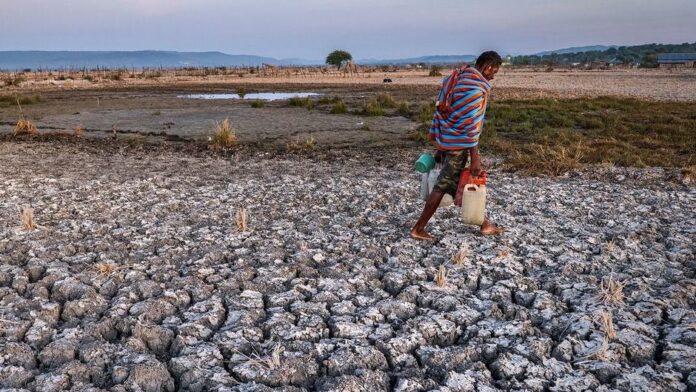Nearly 80 percent of the world’s poor — around 887 million people — live in regions increasingly exposed to extreme heat, flooding, droughts, and other climate hazards, according to a new report by the UN Development Programme (UNDP) and Oxford University. The findings, released ahead of the COP30 Climate Summit in Brazil, underline how climate change is reshaping global poverty and worsening existing inequalities.
Climate Crisis Deepening Global Poverty
For the first time, researchers combined climate hazard data with multidimensional poverty data, offering a clearer picture of how environmental and social crises intersect.
“Poverty is no longer a standalone socio-economic issue. It is now compounded by the increasingly dramatic effects of the climate emergency,” said UNDP Acting Administrator Haoliang Xu.
Globally, 1.1 billion people live in multidimensional poverty, which includes deprivations in health, education, and living standards. Out of these, 887 million are exposed to at least one major climate hazard, 651 million face two or more, and 309 million endure three or four overlapping climate shocks such as heatwaves, air pollution, floods, and droughts.
Hotspots: South Asia and Sub-Saharan Africa
The report identifies South Asia and sub-Saharan Africa as the most vulnerable regions, together home to over 720 million poor people exposed to severe climate risks.
In South Asia, almost every person living in poverty — 99.1 percent — faces at least one climate-related hazard. The region also tops the world in multi-hazard exposure, with 351 million people (91.6 percent) enduring two or more simultaneous risks.
In sub-Saharan Africa, 344 million people live in poverty-stricken areas frequently hit by floods, droughts, and rising temperatures, intensifying food insecurity and displacement.
Middle-Income Countries: The Hidden Epicentre
According to Sabina Alkire, Director of the Oxford Poverty and Human Development Initiative (OPHI), middle-income countries have become the “hidden epicentre” of multidimensional poverty. They are home to two-thirds of all poor people, and many are at the frontline of the climate crisis.
An estimated 548 million poor people in lower middle-income countries are exposed to at least one climate hazard, while 470 million face two or more overlapping threats.
Rising Temperatures, Rising Risks
The Global Multidimensional Poverty Index (MPI) report warns that countries already suffering from severe poverty will face the greatest temperature increases by the end of the century. Without urgent global action, climate-related shocks will further entrench poverty, reverse development gains, and undermine global sustainability goals.
The report calls for integrated solutions that align poverty reduction, climate adaptation, and ecosystem restoration, ensuring that strategies benefit both people and the planet.
A Call for Global Cooperation Ahead of COP30
UNDP’s Haoliang Xu emphasized the need for holistic, cross-sectoral, and well-funded approaches to tackle poverty and climate change together.
“Addressing such complex and interrelated issues requires urgency and collaboration,” Xu said. “As we look to COP30, we carry forward a message of hope and cooperation. We know what works—and must act now to support the populations and countries in need.”
Key Takeaways
80 percent of the world’s poor (887 million people) live in areas facing climate hazards.
651 million experience two or more environmental shocks.
South Asia (380 million) and Sub-Saharan Africa (344 million) are hardest hit.
Middle-income nations are emerging as the new poverty-climate hotspots.
Report urges integrating poverty alleviation with climate action ahead of COP30.
As the world prepares for the COP30 summit in Brazil, the message from the UNDP-Oxford report is clear: climate resilience and poverty reduction must go hand in hand to secure a sustainable and equitable future.
Baburajan Kizhakedath

